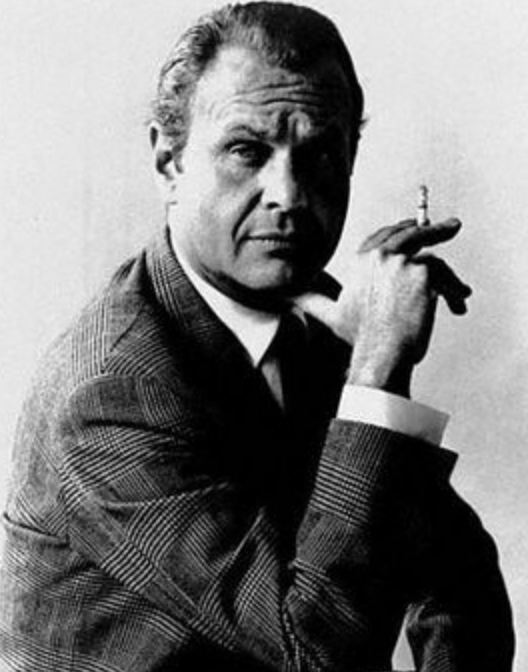fashion
Alexander McQueen

On this date in 1969, fashion designer Lee Alexander McQueen was born in London’s East End, the son of a taxi driver. He dropped out of school at 16 to apprentice himself to Savile Row tailors, worked for Romeo Gigli and Koji Tatsuno, then completed his master’s at Central St. Martins College of Art and Design in 1991.
McQueen soon introduced his own label and was named chief designer at Givenchy in 1996. McQueen won several “Best British Designer” awards. Among his famous clients were David Bowie and Kate Winslet, for whom he designed her “Titanic” dress.
In 2000 he had a marriage ceremony with his partner George Forsyth, a documentary filmmaker. At age 40 in 2010, McQueen committed suicide in his London home. He had suffered from anxiety and depression for some time. (D. 2010)
"I’m an atheist and an anti-royalist, so why would I put anyone on a pedestal?"
— McQueen, 1996 interview, "Bowie on Bowie: Interviews and Encounters with David Bowie," ed. Sean Egan (2015)
Bill Blass

On this date in 1922, fashion designer William Ralph Blass was born in Fort Wayne, Ind. His mother was a dressmaker and his father was a traveling hardware salesman who committed suicide when Blass was 5. Always interested in art, he started selling evening gowns of his own design at age 15 for $25 each to a dress manufacturer in New York. When he was 17 he moved to Manhattan to study fashion. A year later he was the first male to win Mademoiselle’s Design for Living award.
Blass enlisted in the army when he was 20 and was assigned, along with writers, artists, theater people and other creative types, to a special camouflage unit whose mission was to trick the Germans into focusing on false locations to find the Allies. At the end of the war, Blass returned to New York, becoming a protege of Baron de Gunzburg, an influential fashion editor at Vogue and Harper’s Bazaar.
During the 1950s, Blass worked for Anna Miller & Co., designing what was to become his signature style of clothing. In 1959, when Anna and her brother Maurice Rentner merged companies, Blass became head designer, then vice president of Maurice Rentner Inc. In 1970 the name was changed to Bill Blass Ltd.
Blass designed expensive, beautifully cut and tailored clothing, noted for its classic style and creative use of patterns and textures. He was also the first American designer from the high-fashion end of the industry to design for men. He received several Coty Awards, regarded as the Oscars of the industry, and in 1999 received a Lifetime Achievement Award from the Fashion Institute of Technology. Involved in community work throughout his life, he received numerous public service awards and was a trustee of the New York Public Library.
He sold his company in 1999 for $50 million. His memoir Bare Blass was published in 2002, two years after he was diagnosed with oral cancer.
He kept his personal and public lives separate. According to his obituary in The UK Guardian, “His private life stayed remarkably private to the end.” Fashion writer Bernadine Morris wrote in a New York magazine piece (July 8, 2002): “You could never tell he was gay, because although he had good manners, he was not effete, and if he ever had lovers, it wasn’t anything anyone knew about.” (D. 2002)
Bill Blass: I have a firm belief in such things as, you know, the water, the Earth, the trees and sky. And I’m wondering, it is increasingly difficult to find those elements in nature, because it’s nature I believe in rather than some spiritual thing.
SFWeekly: You’re not a religious man?
BB: No. And I do suppose that science has taken, to a large extent and for a number of people, has taken the place of religion.
SFW: What do you mean by that?
BB: That one can have more belief in scientific cures or scientific miracles than you do in God miracles. It’s inevitable that we will eventually diffuse into nothingness.— SF Weekly (Sept. 1, 1999)
